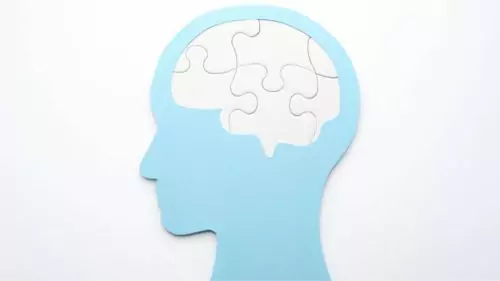Mental health awareness is on the rise among athletes.
More and more we are witnessing professional and amature athletes coming forward, explaining the mental health challenges they face.
This raises two questions:
- Why do so many athletes struggle with their mental health?
- What can we do moving forward to help the athletes who are currently struggling, and work to prevent mental health challenges from impacting so many athletes in the future?
As a mental game coach, working directly with athletes, I am in search of answers to both of these questions.
The first provides insight into the reasoning behind the mental health struggles faced by athletes, and the second gives an actionable framework moving forward.
Mental Health Challenges Faced By Athletes
A term I hear a lot is, “Athletes are humans too.”
I think this really highlights the attitude we, as a general public have towards athletes.
So often we view them as superior humans based on their athletic abilities. That does not mean, however, they are immune to the mental challenges we all face on a daily basis.
In fact, I think athletes are more often than not, at an even higher risk of dealing with mental health struggles.
One of the main reasons is pressure. Yeah, we may all say it’s just a game, or some other slogan that tries to downplay the very real stress athletes place themselves under every day.
But, no matter if an athlete is making millions of dollars or striving for a spot on their varsity high school team, they find themselves under constant scrutiny.
Every day, whether by their teammates, the public, or themselves, athletes are being judged. Such judgement drives feelings of perfectionism, inferiority, and low self-confidence.
Let’s take two of the main mental health topics as examples: depression and anxiety.
Anxiety is very common among athletes. The constant focus on outcomes and expectations fuels worrisome thoughts surrounding not succeeding.
Depression takes form after continually seeing yourself as falling short of your goals.
Many athletes happen to be perfectionists, pushing themselves to a lofty goal they must achieve. As a result, they continually belittle themselves and point out all they did wrong.
Over and over, seeing yourself as unsuccessful, imperfect, and speaking negatively within your mind results in depression.
With this, it’s easy to see why athletes are so susceptible to mental health challenges. Though, based on the shame associated with such an admission, much stigma still surrounds the topic.
For that reason, my answer to the second question proposed in the introduction is to be proactive in training the mind.
“Every day, whether by their teammates, the public, or themselves, athletes are being judged. Such judgement drives feelings of perfectionism, inferiority, and low self-confidence.”
Taking A Proactive Approach
As an athlete myself, and someone who has struggled with their mental health a lot, I’ve adopted a simple phrase that has helped me, and I use it with the athletes I work with:
What now?
What now, meaning, after we admit to having mental health struggles, what are we going to do about it?
The very ground level, basic first step towards progress is admitting we need help. I understand completely how difficult this can be. However, once done, it’s easy to get caught up in this step, unable to take strides forward.
That’s why I love the phrase what now. By asking ourselves that, we move past the fact we are struggling with something and start thinking of how we can be proactive in our treatment.
There are many mental training tools I’ve found helpful for myself and those I work with. One of the most beautiful parts of adopting such a mindset is the strength it builds within your mind.
Not only does a proactive approach to mental health help with your immediate struggles, but it also makes you less susceptible to such challenges in the future.
I can’t tell you how many times I’ve had a spell of depression or anxiety, sought help, only to relapse in the future.
It wasn’t until I took up the practice of training my mind proactively, on a daily basis that I found continual relief and a decrease in symptoms.
The same can be said by the athletes I work with. Through taking a proactive approach, you are strengthening your mindset and building the mental skills you need, not only to manage your mental health, but succeed within your sport as well.
Final Thoughts
The recent awareness surrounding mental health has been phenomenal. Witnessing top level athletes admit to the struggles they face shows strength and provides support to younger athletes in similar situations.
My challenge to all who are struggling with mental health is to not simply stop at an admission, but ask yourself, what now?
What can you do proactively, each day, to fight the symptoms you are currently struggling with and to build your mind in defense moving forward.
Thank you for reading and I wish you the best of success in all that you do.





